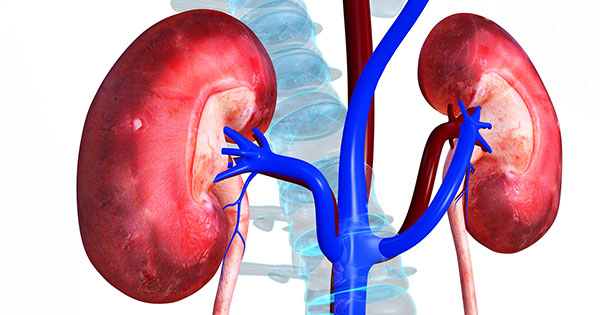Experts express concern over the growing consumption of artificial sweeteners, now prevalent in baked goods such as bread, pastries, and biscuits, replacing sugar in products offered by bakeries and food processing companies. They warn that this trend could pose significant health risks to Nigerians.
Furthermore, they advise against using artificial sweeteners for weight management or reducing the risk of noncommunicable diseases, citing potential long-term health hazards including diabetes, heart issues, and kidney problems.
Recent guidelines on Non-Sugar Sweeteners issued by the World Health Organization (WHO) underscore the risks associated with using NSS for weight control or disease prevention, emphasizing that NSS lack essential nutritional value and are not necessary dietary components.
The WHO advocates for reducing overall dietary sweetness, starting from an early age, as a means to enhance health and well-being.

The recommendation is grounded in the results of a systematic review, indicating that the utilization of Non-Sugar Sweeteners (NSS) doesn’t yield enduring advantages in reducing body fat among adults or children.
The WHO’s findings suggest potential adverse effects stemming from prolonged NSS use, including an elevated risk of type 2 diabetes, cardiovascular ailments, and mortality among adults.
Francesco Branca, the Director for Nutrition and Food Safety at the WHO, remarked, “Substituting free sugars with NSS does not contribute to long-term weight management. Individuals should explore alternative methods to diminish free sugar consumption, such as opting for foods containing naturally occurring sugars, like fruit, or unsweetened food and beverages.”
“Non-Sugar Sweeteners (NSS) lack essential dietary significance and offer no nutritional value. It is advisable for individuals to decrease overall dietary sweetness from an early age to enhance their health.
“This guidance is applicable to all individuals, except those with pre-existing diabetes, and encompasses all synthetic and naturally occurring or modified non-nutritive sweeteners that are not categorized as sugars found in processed foods and beverages, or marketed separately for consumer addition to foods and beverages.
“The World Health Organization (WHO) delineated non-sugar sweeteners such as acesulfame K, saccharin, aspartame, advantame, cyclamates, neotame, sucralose, stevia, and stevia derivatives, cautioning against the potential health risks associated with their long-term consumption.
“The directive excludes personal care and hygiene items containing NSS, like toothpaste, skincare products, and medications, as well as low-calorie sugars and sugar alcohols (polyols), which, being sugars or sugar derivatives with caloric content, are not classified as NSS.”
Experts expressed concerns about the widespread adoption of artificial sweeteners in lieu of regular sugar, driven by the substantial increase in sugar prices in the country. They warned of potential adverse effects on health if consumption is not curtailed.
Nutritionist and Founder of Corlerns Foods Ltd, based in Awka, Anambra State, Obiora Chukwunulu, highlighted that the escalating cost of sugar—exceeding a 150 per cent increase—has prompted many to turn to Non-Sugar Sweeteners (NSS). He noted that these substitutes often impart a sweeter taste than sugar, requiring only minimal quantities to sweeten foods and beverages, yet they are more cost-effective.
Chukwunulu elaborated, “A small amount of saccharin, for instance, which is relatively inexpensive, can effectively sweeten a large batch of dough, whereas the same amount of sugar would be prohibitively costly. What N500 worth of saccharin achieves, N1,000 worth of sugar cannot.”
“From a business perspective, food manufacturers and processing companies favor artificial sweeteners because they can enhance profitability, despite the associated health risks. While there are established safe usage thresholds for these sweeteners, exceeding them can pose risks to health.
“This is evident in the often unpleasant aftertaste associated with excessive consumption, leading individuals to seek ways to alleviate it. Long-term and daily use of artificial sweeteners has been correlated with a higher likelihood of stroke, heart disease, and mortality, as supported by some research findings.
“Echoing these sentiments, Dr. Akinsanya Olusegun-Joseph, a Consultant Cardiologist at the Lagos University Teaching Hospital, Idi-Araba, highlighted the need for further research to comprehensively understand the impact of Non-Sugar Sweeteners (NSS) on cardiovascular health. He emphasized a noted association between NSS, diabetes, and heart conditions.
“Citing research involving over 4,000 individuals across the United States and Europe, Dr. Olusegun-Joseph pointed out that elevated blood erythritol levels, one of the sweeteners, correlated with an increased risk of adverse cardiovascular events such as heart attacks, strokes, or mortality.
“He emphasized moderation in sugar consumption as a prudent approach, noting that diabetes not only affects vascular health but also serves as a risk factor for cardiovascular diseases.
“A study published in the National Library of Medicine by Kirtida Tandel, titled ‘Sugar Substitutes: Health controversy over perceived benefits,’ confirms the harmful effects of NSS on the body, substantiated by numerous studies. While sugar is a ubiquitous component of our diet, excessive consumption is detrimental to dental and overall health. Therefore, artificial sweeteners, which mimic the taste of sugar but typically offer fewer calories, continue to attract consumers.”
“Despite their perceived benefits, animal studies have compellingly demonstrated that artificial sweeteners can lead to weight gain, brain tumors, bladder cancer, and various other health risks. Additionally, certain adverse health effects, such as carcinogenicity, have also been observed in humans.”



